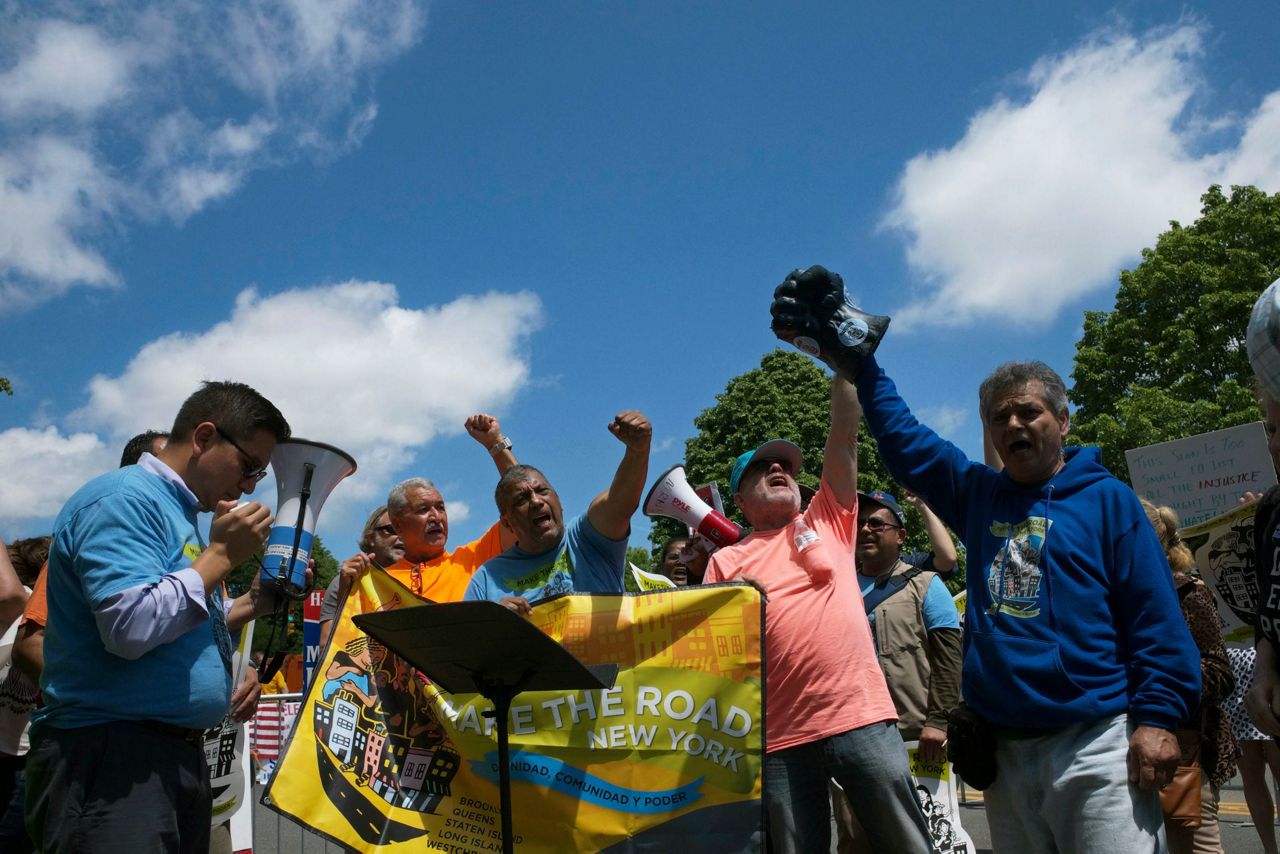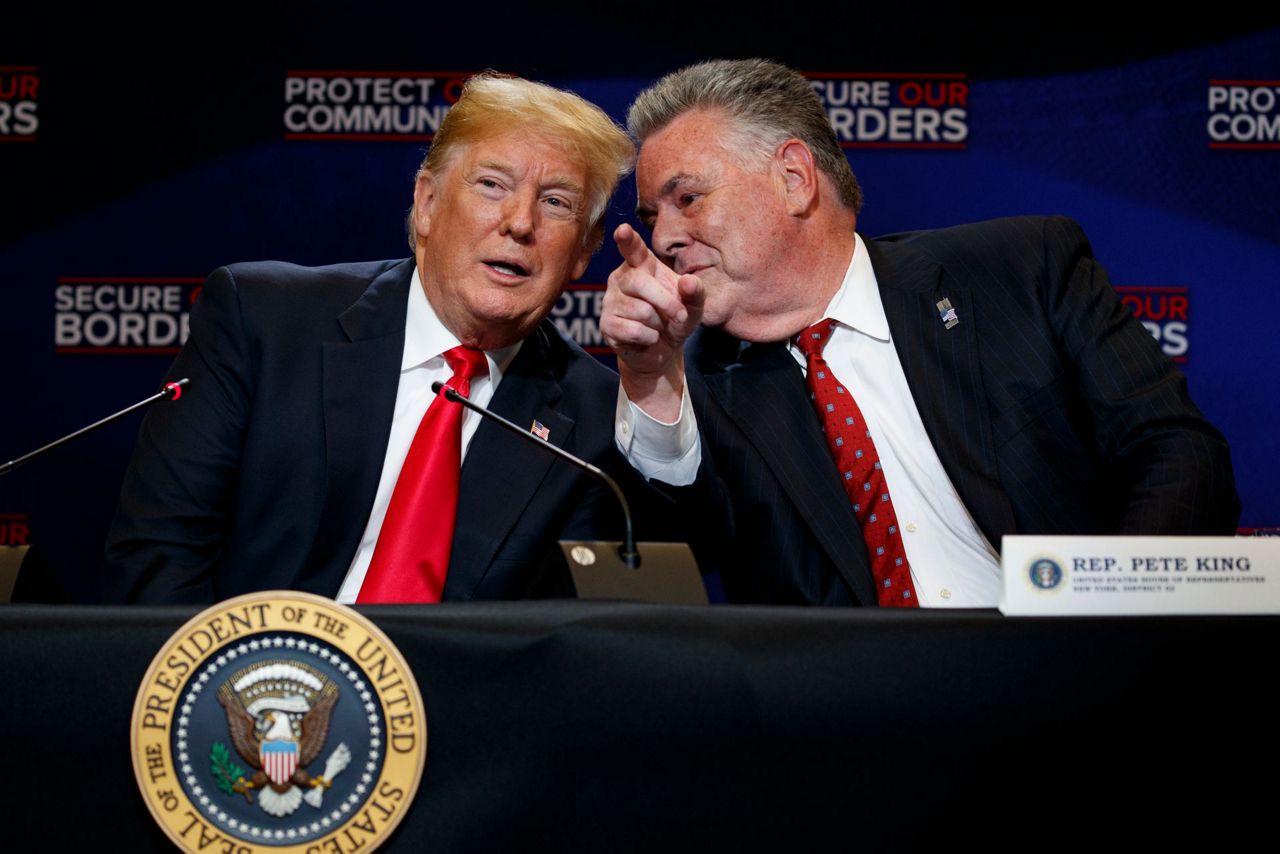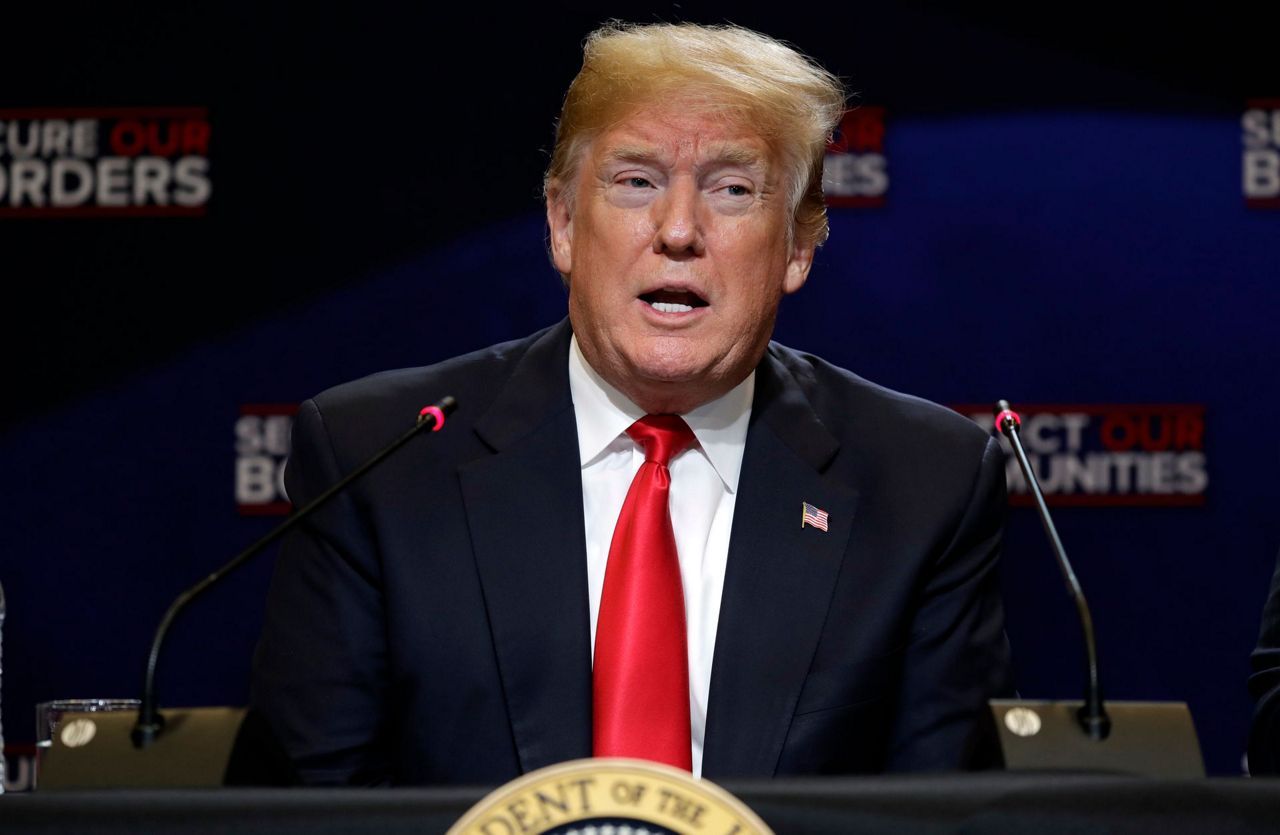BETHPAGE, N.Y. (AP) — Describing gang violence inflicted by MS-13 members in chilling and gruesome detail, President Donald Trump vowed Wednesday to make "radical" changes to U.S. aid practices by withholding government assistance from countries whose citizens enter the United States illegally.
"We're going to work out something where every time somebody comes in from a certain country, we're going to deduct a rather large amount of money from what we give them in aid — if we give them aid at all," Trump said during a roundtable discussion on MS-13 on New York's Long Island attended by federal and local officials.
"We're looking at our whole aid structure and it's going to be changed very radically. It's already started," he said.
White House officials did not immediately respond to questions about which countries the president was referencing or how far along a plan is — but it's not the first time he's made the suggestion.
Trump threatened in February to cut aid from and slap sanctions on countries that refuse to accept nationals the U.S. tries to deport. "They'll take 'em back so fast your head would spin," he said then.
During the roundtable, Trump and officials who support more stringent border laws, defended the president's references to MS-13 gang members as "animals" as they recounted a litany of hackings, decapitations, bludgeonings and other gruesome crimes that law enforcement authorities blame on the group.
"I called them animals the other day and I was met with rebuke," Trump said, referencing Democratic criticism. "They said, 'They're people.' They're not people, these are animals and we have to be very, very tough."
He singled out House Minority Leader Nancy Pelosi, who was among those who lashed out at the comment, which some had interpreted as being directed at a broader swath of illegal immigrants than MS-13 members. Pelosi had said that, "when the president of the United States says about undocumented immigrants, 'These aren't people. These are animals,' you have to wonder, does he not believe in the spark of divinity, the dignity and worth of every person?"
Trump, however, accused Pelosi of defending MS-13 and suggested her party would suffer politically for its reaction.
"The other day was actually a great day when they were coming to the defense of MS-13 ... and that was the end of them because nobody, nobody understood it," he said.
Trump's "animal" remark," made at a similar roundtable last week at the White House, came in response to a comment about MS-13. But it was reported by some news organizations without context, sparking a furious blowback that the White House quickly seized on and used to suggest that Democrats were defending members of a gang known for brutal violence.
Rep. Lee Zeldin, R-N.Y., was among the attendees who defended Trump's rhetoric Wednesday. "If you're not willing to even identify the threat, you have no chance of eliminating it," he said.
Robert Mickens, the father of Nisa Mickens, who was murdered in 2016 by MS-13 gang members on Long Island, also praised Trump for focusing on the issue and spoke of the pain of losing his daughter.
"For those who don't know, who haven't been through this, we have to go through every day. It's an ongoing struggle," he said. "It's not easy for us, especially me, to wake up, look down the hallway, and not see my daughter laying in her bed or me waking her up for school in the morning."
MS-13, or the Mara Salvatrucha, is believed by federal prosecutors to have thousands of members across the U.S., primarily emigrants from Central America. It has a stronghold in Los Angeles, where it emerged in the 1980s as a neighborhood street gang, but has wreaked violence in cities and suburbs across the U.S., including Long Island. Many of its members are U.S. citizens not subject to deportation.
Trump opened Wednesday's event by reading a list of crimes said to have been committed by MS-13 members, including the killing and hacking of a teenager in Nassau County, New York, and the stabbing of a man 100 times, followed by his decapitation and removal of his heart, in Maryland.
"It's a menace, a ruthless gang that has violated our borders and transformed once peaceful neighborhoods into bloodstained killing fields," Trump said of the gang, blaming "crippling loopholes in our laws" for allowing "MS-13 members to infiltrate our communities."
Trump has been calling on Congress to pass legislation to end those so-called loopholes, including "catch-and-release," which generally refers to the release of unauthorized immigrants while they await immigration hearings instead of keeping them in custody.
The administration also wants to end special safeguards for children traveling alone when they are arrested at the border. Under current law, unaccompanied children from countries that don't border the U.S. must be freed under supervision of the Department of Health and Human Services and placed in often-lengthy deportation proceedings before an immigration judge.
Many of those trying to enter the U.S. are fleeing gang and other violence in their own countries.
Sitting at the table with Trump was Deputy Attorney General Rod Rosenstein, a frequent target of the president's fury because he is overseeing the special counsel's investigation into Russian election meddling. He and Trump appeared on good terms Wednesday, with no hints of any tension between them.
A group of about 50 protesters demonstrated outside the building where Trump spoke. They echoed the concerns of some civil liberties advocates, who argue the crackdown on MS-13 on Long Island has also swept up innocent immigrants with no connection to gangs.
"Putting the wrong people in jail is not helping because they're taking anybody for any reason," said demonstrator Javier Guzman.
The president also stopped by New York City Wednesday evening for a fundraiser held at a hotel just blocks from Trump Tower, where he used to live. The 75-person dinner was expected to raise $5 million for the Republican National Committee and the president's re-election campaign, the RNC said.
___
Superville reported from Washington.
Copyright 2018 The Associated Press. All rights reserved. This material may not be published, broadcast, rewritten or redistributed.






